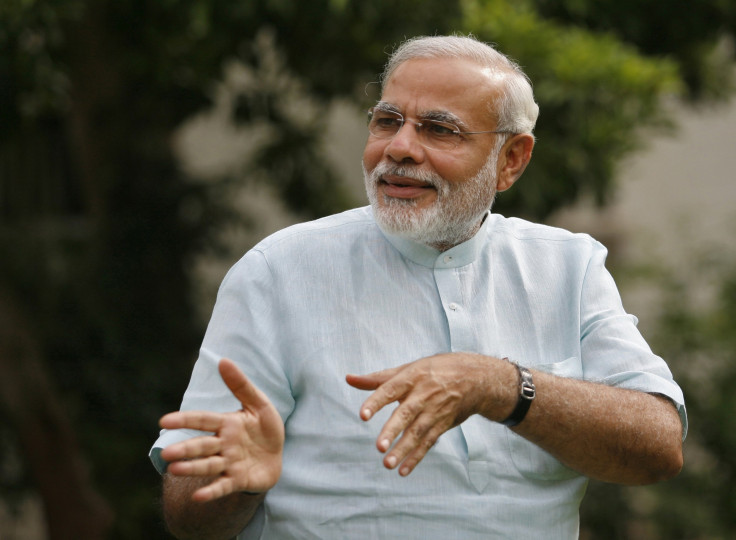Narendra Modi: India’s Controversial Politician Named Opposition Party BJP’s Prime Ministerial Candidate For 2014 Parliamentary Elections

Narendra Modi, a top right-wing Indian politician and chief minister of the western state of Gujarat, has been named the prime-ministerial candidate of India’s key opposition party for the parliamentary elections slated to be held before May 31, 2014.
Modi, a polarizing figure in Indian politics, is a senior leader of the Bharatiya Janata Party, or BJP, India’s key opposition party, and has been chief minister of Gujarat since 2001. He was formally anointed to head the BJP-led coalition in the coming elections on Friday, when BJP’s parliamentary board -- the party’s highest decision-making body -- ratified the decision.
The anointment pits Modi against Rahul Gandhi -- a top leader of the ruling Congress Party and the son of party chief Sonia Gandhi -- who has been widely rumored to be the ruling coalition’s prime-ministerial choice for the elections.
“I will leave no stone unturned in working for a BJP victory in the 2014 Lok Sabha elections,” Modi said in a a statement after being nominated. “I seek the blessings of the people in our efforts to free our nation of the turbulent times we are going through.” (The Lok Sabha, or House of the People, is the lower house of India’s Parliament.)
Modi faces opposition within BJP, as former Deputy Prime Minister L.K. Advani refused to endorse the party’s choice and steered clear of Friday’s meeting.
Modi is popular among India’s business community and growing middle class, mainly because of his pro-business policies and his being credited with the resurgence of Gujarat as a business hub.
Almost 75 percent of top Indian business leaders said they wanted Modi to lead the country, while only 7 percent expressed support for Rahul Gandhi in the same spot, according to an Economic Times/Nielsen opinion poll published Sept. 6, Reuters reported.
However, Modi continues to garner criticism over his administration’s handling of the communal riots of 2002, when more than 1,000 people were killed in Gujarat -- most of them Muslims -- during his first term as the state’s chief minister.
The U.S. denied Modi a visa in 2005 over concerns about his role in the those riots. Last March, his planned keynote address via video conference at the Wharton India Economic Forum of the University of Pennsylvania was canceled after the invitation triggered a strong protest among some members of the college community.
Modi continues to reject calls to offer an apology for the 2002 communal riots, saying he had not committed any crimes in connection with the riots and that he was cleared of any wrongdoing by a Supreme Court-appointed investigation team.
© Copyright IBTimes 2024. All rights reserved.












